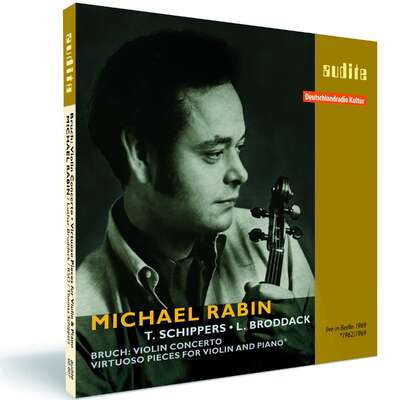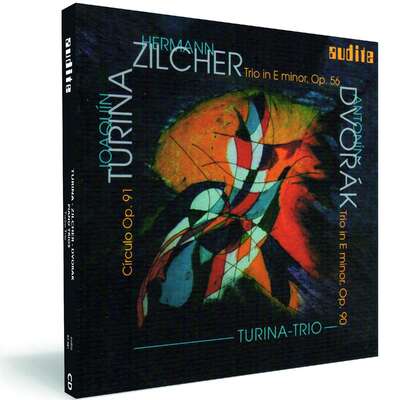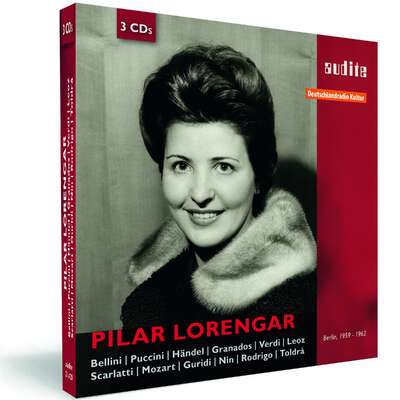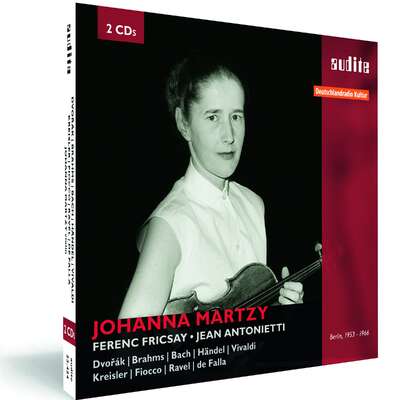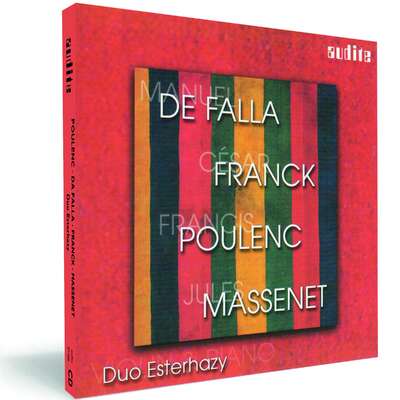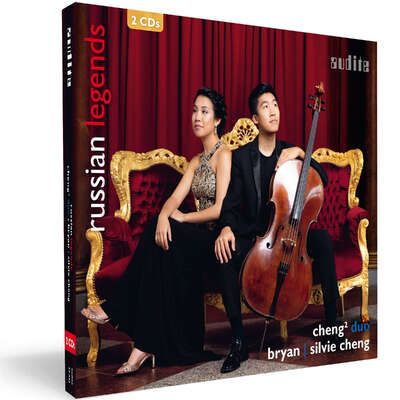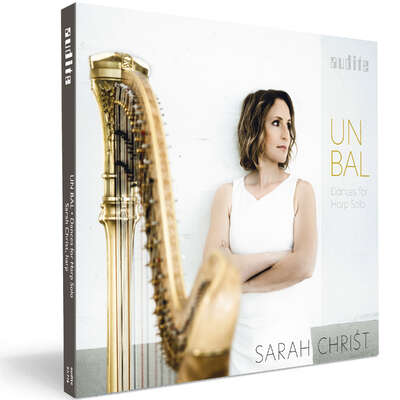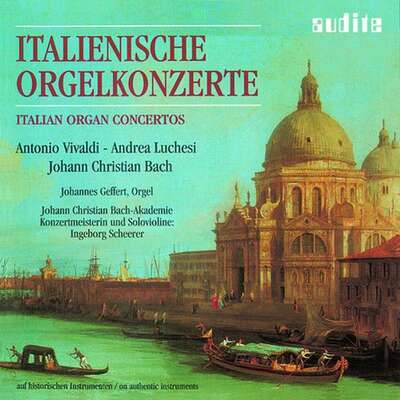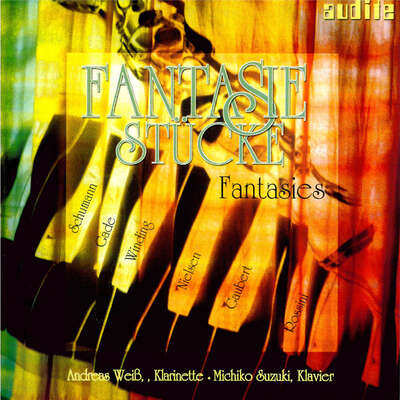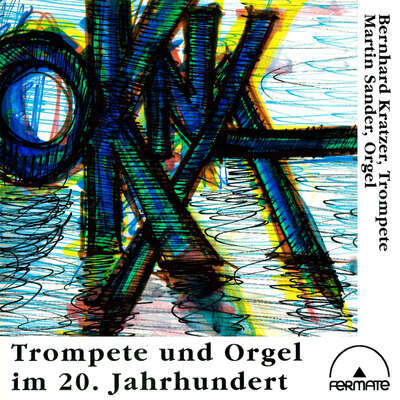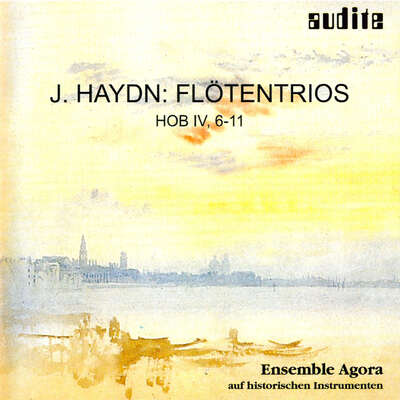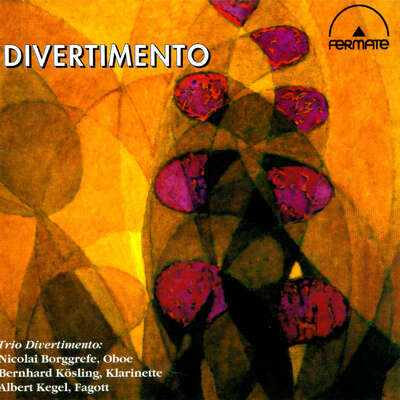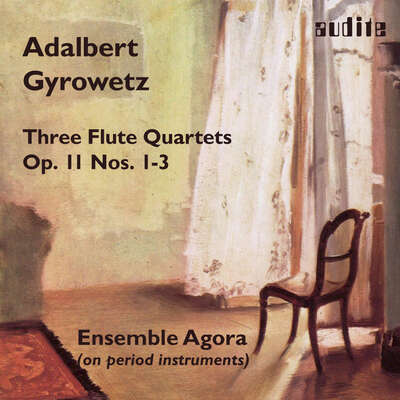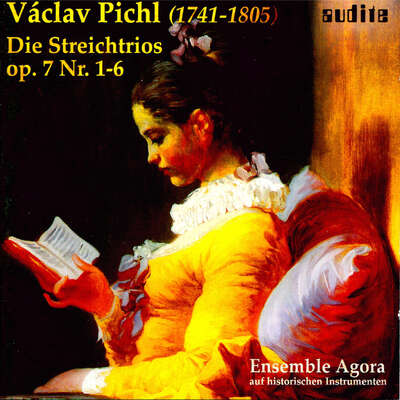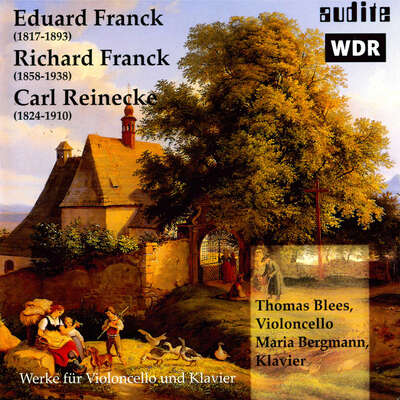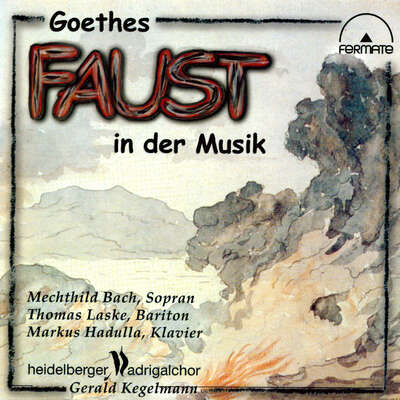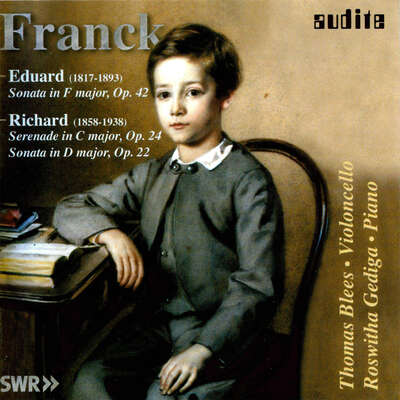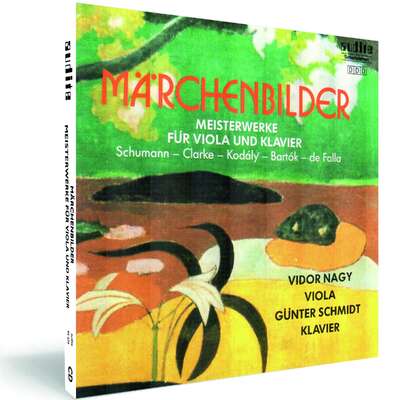
Auto-Rip
Das Cheng² Duo setzt seine musikalische Reise durch Europa fort: Bryan und Silvie Cheng widmen ihr zweites Album den leidenschaftlich-feurigen Klängen Spaniens. Die Werke führender spanischer Komponisten des 20. Jhs. von Granados, de Falla, Albéniz und Turina werden ergänzt von Cassadós Requiebros und Sarasates berühmten Ziegeunerweisen.mehr
Das Cheng² Duo setzt seine musikalische Reise durch Europa fort: Bryan und Silvie Cheng widmen ihr zweites Album den leidenschaftlich-feurigen Klängen Spaniens. Die Werke führender spanischer Komponisten des 20. Jhs. von Granados, de Falla, Albéniz und Turina werden ergänzt von Cassadós Requiebros und Sarasates berühmten Ziegeunerweisen.
Details
| Violonchelo del fuego | |
| Artikelnummer: | 97.736 |
|---|---|
| EAN-Code: | 4022143977366 |
| Preisgruppe: | BCA |
| Veröffentlichungsdatum: | 4. Mai 2018 |
| Spielzeit: | 71 min. |
Zusatzmaterial
Informationen
Nach der erfolgreichen Veröffentlichung seines Debütalbums Violoncelle français bei audite präsentiert das Cheng² Duo („Cheng Squared Duo") nun ein fesselndes Programm mit Musik führender spanischer Komponisten des frühen 20. Jahrhunderts. Auch die neuen Interpretationen sind geprägt von der selten zu findenden Balance aus ungefilterter, mitreißender Spielfreude und Begeisterung auf der einen Seite und reifem, historisch informiertem, tiefgründigem Musizieren auf der anderen; diese besondere Balance ist zum Markenzeichen des Cheng² Duo geworden und lässt von der ersten Note an aufhorchen.
Violonchelo del fuego ist die zweite in einer Folge von Aufnahmen beim Label audite, die jeweils der Musik eines bestimmten Landes gewidmet sind. Ein weiteres Album mit russischer Musik für Violoncello und Klavier ist bereits in Planung.
Seit seinem Debüt in der Carnegie Hall 2011 wird das Cheng² Duo von Publikum und Kritikern gleichermaßen für seine herausragenden künstlerischen Fähigkeiten, seine warmherzige Art und seine unwiderstehliche Ausstrahlung geschätzt. Das kanadische Geschwister-Duo mit Bryan Cheng (Violoncello) und Silvie Cheng (Klavier) musiziert seit 15 Jahren zusammen. Das Duo gab Konzerte in Nordamerika, Europa und Asien und war Gast bei zahlreichen internationalen Festivals, darunter Aspen (USA), Trasimeno (Italien), das Ottawa Chamberfest und das Festival of the Sound (Kanada). Die Künstler sind nicht nur als Cheng² Duo erfolgreich, sondern wurden jeweils auch als Solisten mit renommierten Preisen ausgezeichnet:
Bryan Cheng, ausgezeichnet mit dem Canada Council for the Arts Michael Measures Prize 2017, hat durch seine natürlich-virtuose Beherrschung des Cellos und durch sein reifes, leidenschaftliches Musizieren breite Aufmerksamkeit erregt. Sein Orchesterdebüt gab er im Alter von 10 Jahren in Montréal, sein Carnegie Hall-Debüt im Alter von 14 Jahren. Seither folgt er Einladungen zu Soloauftritten mit zahlreichen Orchestern, zu Festivals und zu Kammerkonzerten in Nordamerika und Übersee. Er ist erster Preisträger des National Arts Centre Bursary Competition, gewann den zweiten Preis beim OSM Manulife Competition und war CBC Young Artist of the Year. Bryan Cheng widmet sich mit großem Enthusiasmus auch der zeitgenössischen Musik und hat in Kanada und den USA mehrere Werke zur Uraufführung gebracht. Vormals Student beim Cellisten und Dirigenten Yuli Turovsky und bei Hans Jørgen Jensen an der Northwestern University (USA), studiert er derzeit in der Klasse von Jens Peter Maintz an der Universität der Künste in Berlin.
Silvie Cheng, ausgezeichnet mit dem Roy M. Rubinstein Award for Exceptional Promise in Piano Performance („außergewöhnlich vielversprechende Klavierdarbietung"), gab ihr Orchesterdebüt im Jahr 2008; drei Jahre später folgte ihr Carnegie Hall-Solodebüt. Sie ist Gewinnerin zahlreicher nationaler und internationaler Klavierwettbewerbe, darunter Preise beim Thousand Islands International Piano Competition, dem Heida Hermanns International Piano Competition und dem Lillian Fuchs Chamber Music Competition. Soloauftritte und Kammermusikkonzerte führten sie in bedeutende Konzertsäle und zu Festivals in Nordamerika und Europa. Silvie Cheng studierte am Royal Conservatory of Toronto; ihre Bachelor- und Masterprüfungen legte sie an der Manhattan School of Music in New York ab, wo Jeffrey Cohen als Lehrer wesentlichen Einfluss auf ihre Entwicklung hatte. Meisterkurse mit namhaften Pianisten wie Menahem Pressler, Angela Hewitt und Christoph Eschenbach runden ihre musikalische Ausbildung ab. Zudem ist sie Pianistin des sTem Trio sowie Dozentin an der Manhattan School of Music und beim Bridge Arts Ensemble.
Besprechungen
Der Reinbeker | 6. Juni 2019 | Peter Steder | 6. Juni 2019 Musik aus aller Welt
[...] ein Streifzug durch Spanien zu führenden Komponisten des 20.Jhdt.: Albeniz (aus »España«), Granados (aus »Goyescas« und »Danzas Españolas«), de Falla (aus »La vida breve« u. »El amor brujo«) und Turina (aus »Danzas fantásticas«), ferner Cassadós Suite f. Violoncello (3 Tanzsätze) und de Sarasates »Zigeunerweisen«, die als Eckpfeiler der virtuosen Violinliteratur gelten.Mehr lesen
thewholenote.com | 30 October 2018 | Michael Schulman | 30. Oktober 2018 | Quelle: https://www.thew...
Bryan combines a dark, robust tone with jaw-dropping bravura, while Silvie creates an extraordinarily varied palette of keyboard colours that enhance her imaginative, nuanced phrasing. Together, they offer remarkably fresh approaches to familiar music, making their first two CDs so very special.Mehr lesen
Süddeutsche Zeitung | 20. August 2018 | Harald Eggebrecht | 20. August 2018 | Quelle: https://www.sued...
Ironisch virtuos
Beethoven geht immer, das Casals-Quartett hat mit dessen 16 Streichquartetten einen Anfang gemacht. Aber was ist mit Boris Blacher?
Vibrato dient hier in unterschiedlichster Schwingung als Farbeffekt, nicht als Passpartout. Die Plötzlichkeit im Wechsel von Hell und Dunkel, absolut konstituierend in der Musik dieser Komponisten, gelingt blitzschnell und überraschend. Das Elegische singt Cheng ohne Schmalz aus, das Bittere trifft er genau. So werden de Fallas "Siete canciones" zu messerscharf umrissenen Charakterstücken und Cassadós Solosuite zum Ereignis herber, strenger, doch auch träumerischer Schönheit.Mehr lesen
Crescendo Magazine | Le 18 juillet 2018 | Pierre Fontenelle | 18. Juli 2018 | Quelle: http://www.cresc... Voyage au cœur des fantaisies, passions, et danses espagnoles
On est impressionné par l’aisance et la propreté des interprétations des œuvres du compositeur-interprète Gaspar Cassadó, sommets de cette parution discographique. Synthèse formidable entre les avancées harmoniques impressionnistes, la technique avancée du violoncelle et le mouvement de Nationalisme Ibérique, sa formidable Suite est sans doute un des plus beaux fleurons du répertoire pour violoncelle seul.Mehr lesen
Facebook | 28. Juni um 22:46 | Hans Ackermann | 28. Juni 2018 | Quelle: https://www.face...
Spanische Komponisten, sehr schön bearbeitet für Cello und Klavier vom Cheng² Duo, mit Silvie und Bryan Cheng, hervorragend aufgenommen von LudgerMehr lesen
RBB Kulturradio | Do 28.06.2018 | 13:10 | Hans Ackermann | 28. Juni 2018 | Quelle: https://www.kult...
Cheng² Duo: "Violonchelo del fuego"
Das kanadische Geschwister-Duo Bryan und Silvie Cheng hat Musik verschiedener spanischer Komponisten für Cello und Klavier aufgenommen
Neben Einzelsätzen aus bekannten Suiten wie "España" von Isaac Albeniz oder den "Danzas Espagñolas" von Enrique Granados haben dieMehr lesen
Der 1876 in Cadiz geborene Komponist hat hier sieben spanische Volkslieder und Tänze in die Konzertmusik des frühen 20. Jahrhunderts überführt – flirrende Mittelmeerklänge, die das kanadische Duo mit Temperament und Hingabe spielt.
Flirrend
Gaspar Cassadós "Suite per Violoncello" trägt Bryan Cheng dann allein und äußerst virtuos mit seinem Cello vor. Das 1926 komponierte Werk bezieht sowohl die barocke Sarabande als auch volkstümliche katalanische Tänze mit ein. Flexibel im Ton, bringt Bryan Cheng beide musikalischen Welten in den insgesamt drei Sätzen des anspruchsvollen Werkes zusammen.
Flamenco
Neben den beiden komplett aufgenommenen Werken finden sich verschiedene Zugabenstücke, wie das Intermezzo aus den "Goyescas" von Granados, eine Malagueña – als Flamenco-Reverenz von Isaac Albéniz – und abschließend Pablo de Sarasates "Airs bohémiennes". Eigentlich ein Bravourstück für die Violine, das der gerade erst 20 Jahre alt gewordene Bryan Cheng aber nicht minder virtuos auf seinem Cello spielt – als Abschluss eines gelungenen musikalischen Ausflugs auf die iberische Halbinsel.
Europäisch
Aufgenommen wurde das Album in hervorragender Qualität in der Berliner Jesus Christus Kirche. Der transparente, luftige Klang passt hervorragend zum sommerlichen Repertoire, das die Geschwister Cheng hier wieder sehr stilsicher interpretieren – wie schon beim Debütalbum "Violoncelle français", bei dem vor zwei Jahren ausschließlich französische Komponisten aufgenommen wurden.
Egal, welches Land sich die beiden kanadischen Musiker für ihre nächste Europareise aussuchen werden – man kann sich jetzt schon darauf freuen.
http://largestagelive.blogspot.de | Friday, 1 June 2018 | Ken Stephen | 1. Juni 2018 | Quelle: http://largestag... Fire and Passion
Once again, I am breaking my own self-appointed mandate of live performance reviews to review a new recording. There's no justification, other than toMehr lesen
Violonchelo del fuego ("Cello of Fire") is the eye-catching title of this new release from the German label Audite. The cover photos underline the Spanish pedigree of the music we'll be hearing.
Unlike the Duo's initial recording, this one contains only one work originally written for the ensemble of cello and piano. It matters not, for the music is all performed with as much fire and passion as if it were specifically composed with these instruments in mind. This new release also includes works for solo piano and solo cello, another innovation on record for these fine Canadian artists.
This Spanish recital constitutes a whirlwind tour through the great Spanish/Catalan music renaissance during the first half of the last century. It might be called a "Greatest Spanish Hits" compilation, but only in part since some of the works definitely live at the rarely-heard edges of the repertoire. As well, there is one work – the final one on the CD – which is something of an odd number since it is only Spanish by virtue of the nationality of its composer, certainly not in any stylistic way.
Traditional images of the music of Spain often evoke such comparisons as the strumming and plucking of guitars, the stamping of flamenco dancers' feet, and the clacking of castanets. To capture this feeling on instruments such as cello and piano requires the most precise pedalling and playing of staccato (on piano) and pizzicato (on cello), combined with rapid articulation, plenty of freedom of rhythm, and sudden, sharp dynamic contrasts. But these composers also included many pages of melting lyrical beauty, where the needs shift to sustained legato and careful shaping of phrases.
In all these respects and others, Silvie Cheng (piano) and Bryan Cheng (cello) have entirely captured the voices of these composers, and they've done so with energy, verve, and spirit.
From the very first notes of the opening number, the Intermezzo from the opera Goyescas by Enrique Granados, it's plain that we're in a very different musical world from the one which the Cheng²Duo's previous recording explored. Later in the recording, we encounter Granados again in an arrangement of perhaps his best-known composition, the Andaluza, fifth movement of his twelve Spanish Dances for piano. This is one work where I noted especially the difference in colour of the whole as the melody was taken by the cello in a position in the centre of the harmony, where it originally appeared on the top. This gave the entire dance a more autumnal feeling.
Isaac Albeniz, the most redoubtable of all Spanish composers for the piano, appears for only one work here, but it's a delight: the Malaguena from his suite Espana. This work calls for a lighter texture and colour, and the Duo deliver, finding a real sense of fantasy in this beautiful number.
The music of Manuel de Falla is generously represented. The first Spanish Dance from his opera La vida breve opens with an energetic presentation of the main theme. The central slower section brings the most forceful bass notes on piano, again with matching powerhouse pizzicato playing on the cello. The return of the main theme is decorated in this arrangement with additional virtuosic flourishes, all played with great flair and verve.
Equally powerful, if anything even more vivid and dramatic, is the famous Ritual Fire Dance from de Falla's ballet El amor brujo. Especially impressive here is the very wide dynamic range of the playing as the music leaps instantly from the very quiet throbbing rhythm to a full-throated fortissimo.
For a microcosm of the entire musical world of this record, turn to de Falla's Seven Popular Spanish Songs. From the fleet-footed Seguidilla murciana and Jota to the languorous Asturiana and the serene beauty of Nana, the Cheng²Duo capture all the diverse moods of this masterly cycle. In such a performance, one scarcely misses the words. The passionate Polo, with its stabbing chords on the piano and leaping cello line is a highlight of the entire album.
Silvie Cheng plays Turina's Exaltacion with distinction, the dream-like opening giving place to a vigorous treatment of the main theme and a lighter, more fantastic tone for the central section. It's a pity that room wasn't found to include the other two Fantastic Dances, as these pieces are not heard on record nearly often enough.
Bryan Cheng presents a rare and significant Suite for solo cello by cellist/composer Gaspar Cassadó, a work which not only deserves but demands wider currency. Three movements, each inspired by different traditional dance forms, call for the widest range of tone colours and moods, and this thoughtful performance truly captures that diversity.
Another Cassadó rarity follows, Requiebros ("Flirtations" or "Compliments") for cello and piano – another dance, this time somewhat more popular in character, and played by the Duo with panache. For a more detailed look at this music by Cassadó, go to my rare music blog: Cello Beauties From Spain.
The final selection is the odd number, the famous Zigeunerweisen by Pablo de Sarasate, one of the staples of the violin repertoire. The central-European gypsy atmosphere of this piece contrasts oddly with the authentic voices of Spain heard in the rest of the album. What's most striking here is the absolute clarity and precision of Bryan Cheng's virtuoso fireworks on the cello, since the notes are much farther apart than on a violin and the cellist's hand has to race back and forth twice as quickly along the fingerboard!
Taken as a whole, this new recording presents a distinguished survey of that proud and magnificent Spanish musical renaissance of the early twentieth century. Silvie and Bryan Cheng fill every selection with the fire and passion which are so essential to this music.
Audite's recording team has captured all the precision and energy of the playing with great clarity, set against a nicely resonant backdrop. A word of warning though: turn your volume down before you play this recording – it has been transferred at a very high level. The album includes detailed and informative programme notes in German, English, and French.
www.qobuz.com | June 2018 | 1. Juni 2018 | Quelle: https://www.qobu...
What an incredible energy these two bring to the table! [...] The Spain of Cheng² is packed with fire and flames [...] Here is a strong and beautiful album, presenting – with perfect conviction – well-known works but in new formats, thus shining a new musical light onto them.Mehr lesen
www.pizzicato.lu
| 27/05/2018 | Remy Franck | 27. Mai 2018 | Quelle: https://www.pizz...
Notizbuch eines Rezensenten – CD-Kurzrezensionen von Remy Franck (Folge 198)
Spanisches Programm
Das ‘Cheng2 Duo’ (Bryan und Silvie Cheng) spielt bei Audite ein spanisches Programm mit Bearbeitungen für Cello und Klavier. Die GeschwisterMehr lesen
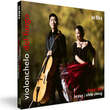














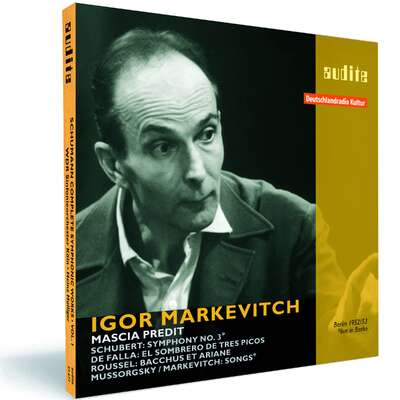
![23446 - k[NOW]n Piano](/image/product/3d/carousel/23446-known_piano.jpg)
